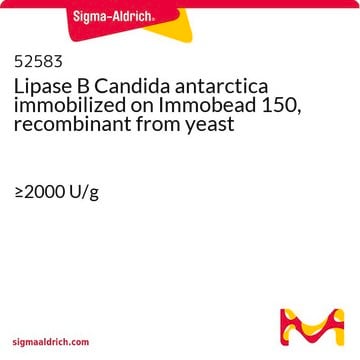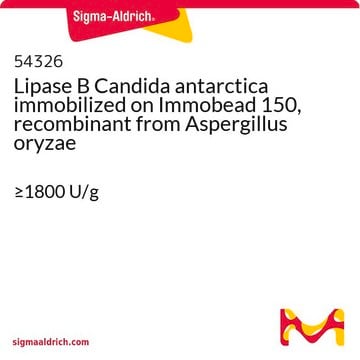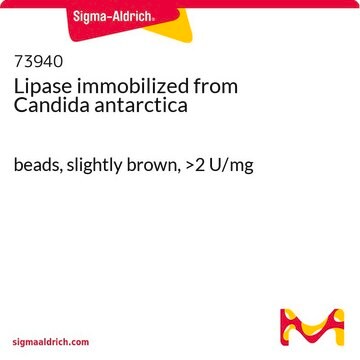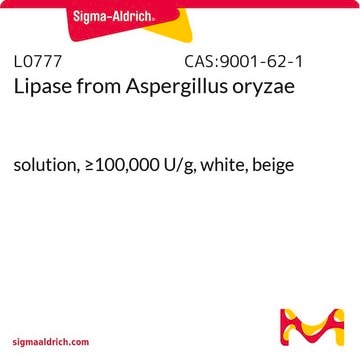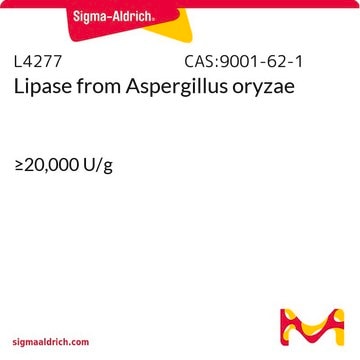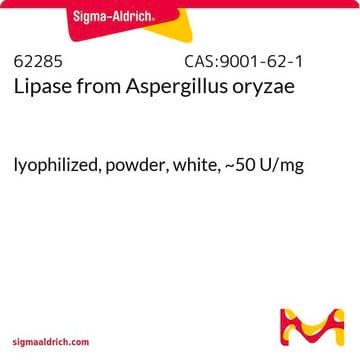62288
Lipase B Candida antarctica, recombinant from Aspergillus oryzae
powder, beige, ~9 U/mg
About This Item
Productos recomendados
recombinant
expressed in Aspergillus oryzae
Quality Level
form
powder
specific activity
~9 U/mg
mol wt
33 kDa
color
beige
storage temp.
2-8°C
InChI
1S/C11H9N3O2.Na/c15-8-4-5-9(10(16)7-8)13-14-11-3-1-2-6-12-11;/h1-7,16H,(H,12,14);/q;+1/b13-9-;
InChI key
QWZUIMCIEOCSJF-CHHCPSLASA-N
¿Está buscando productos similares? Visita Guía de comparación de productos
General description
Application
- as a standard to characterize the enzymatic properties of D5-CalB
- as an efficient biocatalyst to start the reaction to obtain (R)-ester via esterification of racemic secondary alcohol
- to investigate a “green” recycling route for polybutylene succinate (PBS) based on reactive extrusion
- to compare the esterification yield with adsorbed CaLB (aCaLB) and covalently immobilized CaLB (cCaLB)
Biochem/physiol Actions
Candida antarctica lipase B (CALB) possesses wide substrate specificity, high activity and high enantioselectivity, hence it is considered as a major enzyme in biotechnology. It also has the capability to perform in aqueous and non-aqueous reaction environments. CALB is used in transesterification, kinetic resolution and polymerization reactions.
Unit Definition
signalword
Danger
hcodes
pcodes
Hazard Classifications
Resp. Sens. 1
Storage Class
11 - Combustible Solids
wgk_germany
WGK 1
flash_point_f
Not applicable
flash_point_c
Not applicable
ppe
Eyeshields, Gloves, type N95 (US)
Certificados de análisis (COA)
Busque Certificados de análisis (COA) introduciendo el número de lote del producto. Los números de lote se encuentran en la etiqueta del producto después de las palabras «Lot» o «Batch»
¿Ya tiene este producto?
Encuentre la documentación para los productos que ha comprado recientemente en la Biblioteca de documentos.
Los clientes también vieron
Artículos
Efficient epimerization catalyst for enzyme mediated dynamic kinetic resolution (DKR).
Nuestro equipo de científicos tiene experiencia en todas las áreas de investigación: Ciencias de la vida, Ciencia de los materiales, Síntesis química, Cromatografía, Analítica y muchas otras.
Póngase en contacto con el Servicio técnico